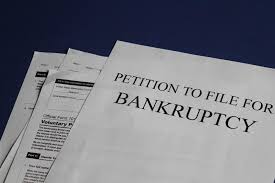Understanding Your Rights When Receiving a Bankruptcy Court Letter Regarding Chapter 11 Cases
Receiving a letter from the Bankruptcy Court notifying you about a Chapter 11 case is a significant event, especially if you have been identified as a potential creditor. This correspondence indicates that the debtor—be it an individual or a business—may owe you money, and it informs you of your rights and responsibilities in the reorganization process that Chapter 11 entails. Understanding the implications of such notices is crucial to protecting your financial interests and navigating the complex bankruptcy landscape effectively.
This comprehensive article aims to elucidate the nature of Chapter 11 bankruptcy, the role of the U.S. Trustee’s Office in class claims, the importance of timely response, and the benefits of consulting with experienced bankruptcy attorneys. We will explore these topics in detail to equip you with the knowledge needed to manage your claims proficiently during bankruptcy proceedings.
What is Chapter 11 Bankruptcy?
Chapter 11 of the United States Bankruptcy Code is a form of bankruptcy that allows individuals and businesses the opportunity to reorganize their debts and continue operating. Unlike Chapter 7 bankruptcy, which involves liquidation of assets to pay creditors, Chapter 11 focuses on restructuring debt obligations and creating a feasible plan for the debtor to remain operational while gradually repaying creditors.
The primary goal of Chapter 11 is to maximize the returns for creditors while giving the debtor a chance to rehabilitate financially. While it is commonly used by corporations, partnerships, and limited liability companies, individuals with substantial debt may also opt for this chapter.
Why Would You Receive a Letter From the Bankruptcy Court?
Receiving a letter from the Bankruptcy Court implies that you have been identified as a potential creditor in a pending Chapter 11 case. This means the court acknowledges you as an entity that may have a monetary claim against the debtor. The letter usually serves several purposes:
- Notification of the bankruptcy filing to inform you of the case’s existence.
- Instructions on how to file your proof of claim.
- Deadlines related to filing claims, objections to plans, or other procedural requirements.
- Information about creditors’ meetings and hearings scheduled during the bankruptcy proceedings.
Such notices are critical. Ignoring them can lead to loss of rights, including the inability to receive payments or participate in creditor votes. Therefore, it is imperative to read these documents meticulously and adhere to all deadlines specified therein.
Role of the U.S. Trustee’s Office and Class Claims Notices
In many Chapter 11 cases, especially those involving multiple creditors with similar claims, the U.S. Trustee’s Office issues letters regarding class claims. These claims group creditors who share analogous interests, such as employees owed wages, bondholders, or suppliers.
The class claim notice outlines your rights concerning participation in the class action, the procedures for filing claims, and instructions on how to object or vote on the debtor’s reorganization plan. Participation in class claims can be advantageous because the claims are often handled collectively, allowing for more streamlined negotiation and potential settlements.
Understanding Your Rights and Obligations
When you receive a notice from the bankruptcy court or U.S. Trustee’s Office, it is essential to understand your rights and obligations fully. These typically include:
- Filing a Proof of Claim: Creditors must submit documentation proving the amount owed by the debtor, the nature of the claim, and relevant supporting evidence.
- Reviewing the Reorganization Plan: The debtor submits a plan to repay creditors over time. Creditors have the right to review and object to this plan if they believe it is unfair or insufficient.
- Attending Creditors’ Meetings: The court may schedule meetings where creditors can ask questions directly to the debtor or trustee regarding case developments.
- Voting on the Plan: Secured and unsecured creditors may be allowed to vote on whether to accept or reject the proposed plan.
- Objecting to Claims or Plans: If you disagree with other creditors’ claims or the debtor’s plan, you can file objections with the court.
Failure to comply with these obligations can severely limit your ability to recover debts or influence the outcome of the reorganization.
Importance of Adhering to Deadlines and Keeping Records
Bankruptcy proceedings are governed by strict procedural rules and deadlines. These deadlines cover claim filing, submissions of objections, and responses to court orders. Missing a deadline can result in your claim being disallowed or dismissed.
It is also important to maintain copies of all correspondence and filings related to the bankruptcy case. Well-organized records enable you to track the progress of the case, respond promptly to court requests, and present evidence if disputes arise.
Why Consult a Bankruptcy Attorney?
Navigating a Chapter 11 bankruptcy case can be complex, especially for those unfamiliar with bankruptcy law. Consulting with a skilled bankruptcy attorney offers numerous benefits:
- Expert interpretation of legal documents and court notices.
- Guidance on filing proofs of claim accurately and timely.
- Assessment of the debtor’s reorganization plan to protect your rights.
- Representation during creditor meetings, court hearings, and negotiations.
- Strategies to maximize recovery and mitigate potential losses.
By leveraging professional legal assistance, you can enhance your ability to effectively participate in bankruptcy proceedings and safeguard your financial interests.
Steps to Take Upon Receiving a Bankruptcy Court Letter
If you or your business receives a letter indicating involvement in a Chapter 11 bankruptcy, consider the following steps:
- Read the Letter Carefully: Pay close attention to the nature of the claim, deadlines, and instructions.
- Organize Relevant Documentation: Gather contracts, invoices, and records corroborating your claim.
- Determine Your Rights: Understand whether you have voting rights or can object to the plan.
- Consult a Bankruptcy Attorney: Seek guidance tailored to your specific situation.
- File Your Proof of Claim on Time: Submit all required forms and supporting materials before the deadline.
- Participate in the Process: Attend meetings, vote on the plan, and monitor case developments.
Common Challenges Faced by Creditors in Chapter 11 Cases
Creditors often encounter several challenges during Chapter 11 proceedings, including:
- Complexity of Legal Procedures: The numerous legal requirements may overwhelm creditors unfamiliar with bankruptcy law.
- Delayed Payments: Reorganization plans often extend payment periods, meaning creditors may wait years to receive funds.
- Disputes Over Claim Amounts: Debtors or other creditors may contest the validity or amount of your claim.
- Limited Influence: Depending on the class of your claim, your ability to influence the plan may be restricted.
- Risk of Claim Disallowance: Failure to meet procedural requirements can result in the claim being disallowed.
Being aware of these challenges and preparing accordingly can improve your position and outcomes.
The Role of Communication and Documentation in Protecting Your Interests
Effective communication with legal counsel, trustees, and other parties is vital. Maintaining clear and detailed documentation supports your claim and provides evidence in case disputes arise. Always keep records of:
- Correspondence with the debtor or trustee.
- Copies of court notices and filings.
- Invoices, contracts, and payment remittances.
- Records of meetings, calls, and negotiations.
This organizational discipline ensures you are prepared for any eventuality during the bankruptcy process.
How Bankruptcy Proceedings Impact Your Financial Position
The implications of a debtor’s Chapter 11 bankruptcy filing on your financial position can be significant. Outstanding debts may be restructured, meaning repayments might be reduced, delayed, or partially discharged. Additionally, priority rules determine which creditors get paid first, and unsecured creditors often receive less than the full amount owed.
Understanding these potential outcomes helps set realistic expectations and informs your decision-making regarding negotiations or potential settlement options.
When and How to Reach Out for Help
If you receive a bankruptcy notice and lack experience with Chapter 11 proceedings, it is wise to seek professional assistance immediately. Delaying action can jeopardize your rights and reduce the likelihood of recovering owed funds.
You can reach out to legal experts by utilizing the contact methods provided in the notice or through communications indicated in professional and trusted directories. Sending a private message or scheduling a consultation allows you to discuss your case confidentially and receive tailored guidance.
Receiving a bankruptcy court letter regarding a Chapter 11 case signals your potential status as a creditor and the opportunity to participate in the debtor's reorganization process. Understanding your rights, meeting deadlines, keeping thorough records, and seeking qualified legal counsel are essential steps to safeguarding your interests throughout these proceedings.
By approaching bankruptcy cases with informed diligence and professional advice, you maximize the likelihood of protecting your claims and navigating the complexities of Chapter 11 bankruptcy effectively.
Legal Marketplace CONSULTANT is your trusted partner in comprehensive legal support for businesses and individuals. Our team comprises skilled attorneys, legal advisors, tax consultants, auditors, and financial specialists dedicated to delivering expert guidance and representation across a variety of legal fields.































